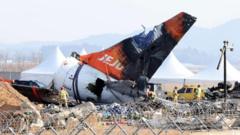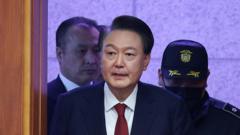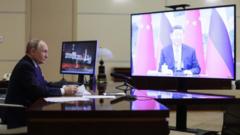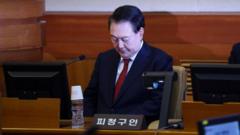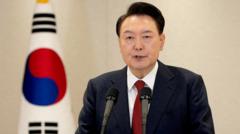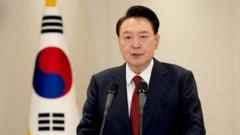A detailed look into the complex situation surrounding the arrest of South Korea's impeached president, Yoon Suk Yeol, highlighting the obstacles faced by law enforcement and the implications for the nation's political landscape.
Arresting a Disgraced Leader: The Challenges Facing South Korea's Authorities
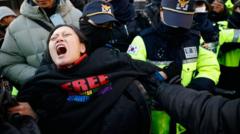
Arresting a Disgraced Leader: The Challenges Facing South Korea's Authorities
South Korea's efforts to arrest impeached President Yoon Suk Yeol faced unprecedented challenges due to loyalty and support networks.
Just before dawn on Wednesday, 3,000 police officers initiated a highly coordinated operation to arrest South Korea's suspended President Yoon Suk Yeol at his fortified residence. This marked their second attempt; the first, earlier this month, resulted in a standoff with over 150 officers unable to breach Yoon’s fortified defenses due to overwhelming crowds of supporters and a human barrier erected by his security team. These officers, loyal to Yoon and appointed during his presidency, had successfully blocked access to the residence, forcing police to retreat after six hours.
Following a controversial martial law order and the subsequent impeachment proceedings against Yoon, the investigation into his conduct led to a warrant for his arrest. Analysts suggested that the composition of his security team featured staunch loyalists, potentially embedded in anticipation of such a scenario. Their initial resistance may reflect a complex blend of personal loyalty and strategic considerations.
However, during the second attempt, the scenario shifted considerably. The police's show of force reportedly played a role in diminishing the security team's resistance. Citing warnings that obstructing officers could result in losing their civil status or pensions, many removed themselves from active defense of the president. In this context, the impact of public sentiment became evident, as thousands of pro-Yoon supporters still rallied outside, some expressing their readiness to confront law enforcement to protect their leader.
Criticism of the arresting agencies also intensified. The Corruption Investigation Office for High-ranking Officials (CIO) faced scrutiny for its perceived failures during the earlier attempt and concerns over its operational capabilities. Originally established following the impeachment of former president Park Geun-hye, the CIO's credibility suffered from the latest incident, drawing remarks about its internal organization and effectiveness.
Even with Yoon's eventual arrest, the case remains complex and politically charged. Yoon's legal team has challenged the CIO’s authority to investigate allegations surrounding him, particularly those linked to insurrection, raising questions about the agencies’ limits in prosecuting high-profile figures. The unfolding saga illustrates a nation grappling with its political fabric, as calls for transparency and effective governance echo amidst the tumult.
This historical case marks Yoon as the first sitting president to face arrest, potentially reshaping the dynamics within South Korea's conservative political landscape moving forward, and eliciting fervor from both supporters and dissenters alike in the ongoing political drama.




